China's big hurdles returning to the forefront of civilisation
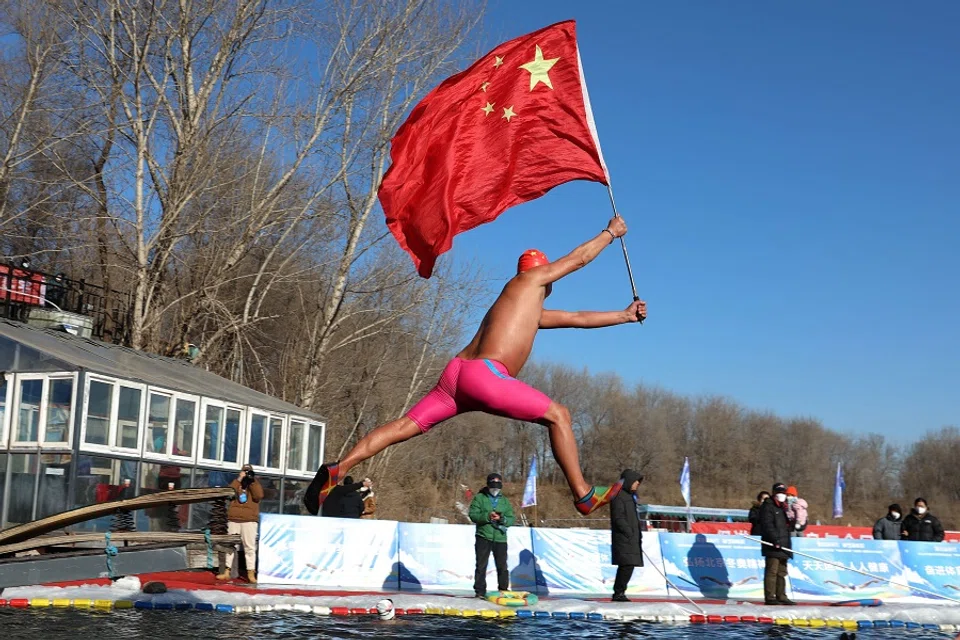
It is a marvel that large-scale lockdowns to achieve zero-Covid were implemented for over three years in China, a country with a population of 1.4 billion. These measures initially showed outstanding results - by the summer of 2021, the people of Wuhan, the first major city to suffer a Covid-19 outbreak and get locked down, were packed shoulder to shoulder having fun in a water park. Meanwhile, other countries were still reeling from the pandemic,
Pictures of such a sight went viral in the global media and China basked in the glory of its success. Talk of confidence in China's system peaked once again, and leaders repeatedly hailed China's counter-pandemic efforts as "number one" in the world.
Sudden opening up
However, the situation completely changed a year later. While countries all over the world gradually returned to normalcy, a state of emergency popped up again and again across China. Even megacities such as Shanghai and Shenzhen, which are crucial for global industrial chains, were shuttered.
The prolonged strict Covid-19 controls have devastated the Chinese economy. The Chinese GDP for the second quarter of 2022 dropped to an all-time low of 0.4%. Enterprises have ceased operation or gone out of business, while supply chains are shifted overseas, effectively contributing to the efforts of the US and some of its allies towards decoupling from China and rebuilding supply chains outside of it. Nonetheless, in October 2022, the Chinese Communist Party (CCP)'s 20th Party Congress report still spoke of "unswervingly adhering to the dynamic zero-Covid policy".
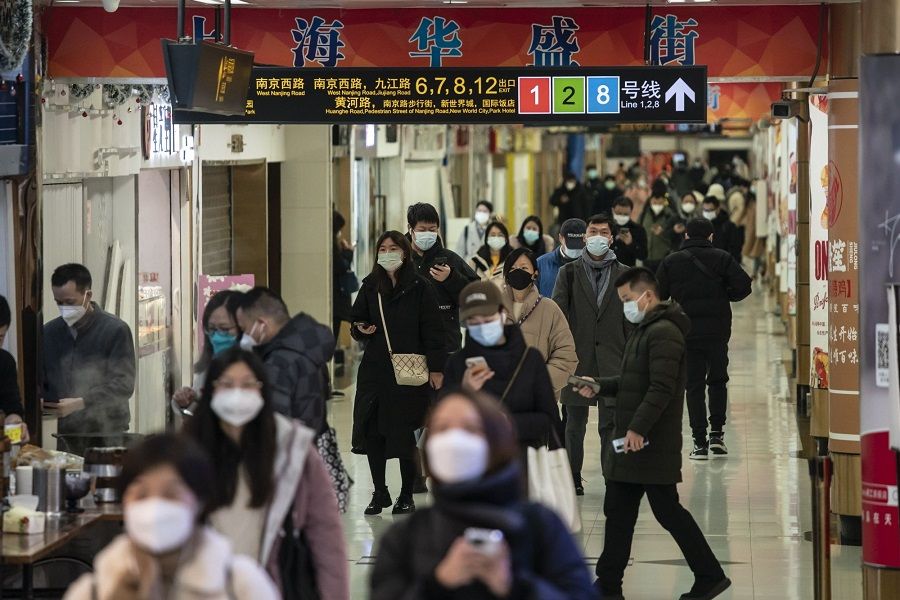
There has been much discontent among the Chinese public, not only because of a loss of freedom and falling quality of life but also because of the uncertainly as to when the strict controls would end.
Small and medium-sized businesses have been closing down in droves; people live on their dwindling savings while they worry about the future. Meanwhile, local governments have been shouldering massive Covid-related spendings along with a crippling reduction in tax revenue. Even the governments of developed localities on the eastern coast have struggled.
Large-scale infections are inevitable. If this scenario leads to a massive number of deaths, then three years of hard work would have gone to waste, not to mention the economic losses incurred as well.
The sudden protests not long ago was a sign of people's discontent reaching a tipping point. The authorities had no choice but to give in. Unfortunately, once the highest echelons started easing up, a chain reaction was triggered among struggling local governments - it was as if a massive river had burst from a broken giant dam. A host of various problems suddenly came to light: the low vaccination rates, especially among the elderly; the lack of hospital beds for the seriously ill; the short supply of Covid-19 medication and so on.
The sudden and ill-prepared opening up comes with a danger of no small magnitude, especially given that China is now in the harsh winter months, with the impending enormous movement of people that is the Lunar New Year travel rush. Large-scale infections are inevitable. If this scenario leads to a massive number of deaths, then three years of hard work would have gone to waste, not to mention the economic losses incurred as well.
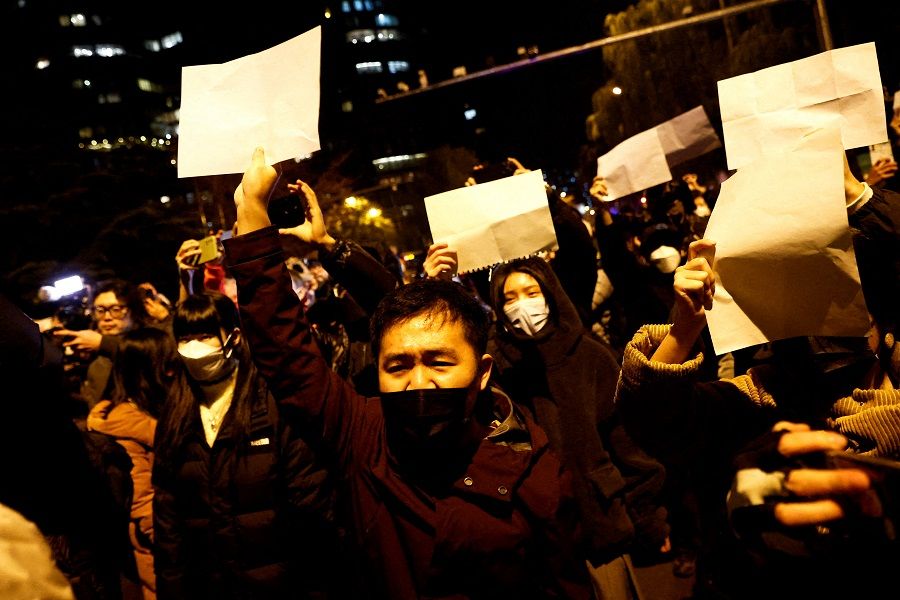
No matter how the Covid-19 situation worsens this winter and the coming spring, China will eventually pull through and get back on track with its economic growth. Nevertheless, the ongoing development has revealed a series of issues pertaining to the Chinese governance model. Seen in the broader historical context, it also raises fundamental questions about the "great rejuvenation of the Chinese nation".
The CCP claims to have created "a new form of human civilisation", but it has probably spoken too soon.
The third axial age
Unlike the major powers that emerged after the Industrial Revolution, China rose up in a time of transition between old and new civilisation. Although it presently marches under the banner of "national rejuvenation", the mission it is bestowed by history is to help in creating a new civilisation for humanity. The CCP claims to have created "a new form of human civilisation", but it has probably spoken too soon.
What China's counter-pandemic track record reveals is obviously not the allure of any "new form" of civilisation, but some essential hallmarks of the existing Chinese system. Without rising above this system, one cannot even begin to speak of "a new form of human civilisation".
Humanity has so far taken two major quantum leaps in spiritual civilisation. The first occurred within the few hundred years before the 2nd century BC. Within approximately the same period and the same range of geographical latitudes, a cluster of important thinkers emerged in the East and West who would profoundly influence the civilisation that was to come. These individuals included Socrates, Plato and Aristotle of ancient Greece, India's Siddhartha Gautama, as well as philosophers of the Hundred Schools of Thought in pre-Qin China.
This period in history was dubbed the Axial Age. The imagery of this epithet is one of an axis, around which the pages of history turned, as the world entered a new phase in the development of civilisation.
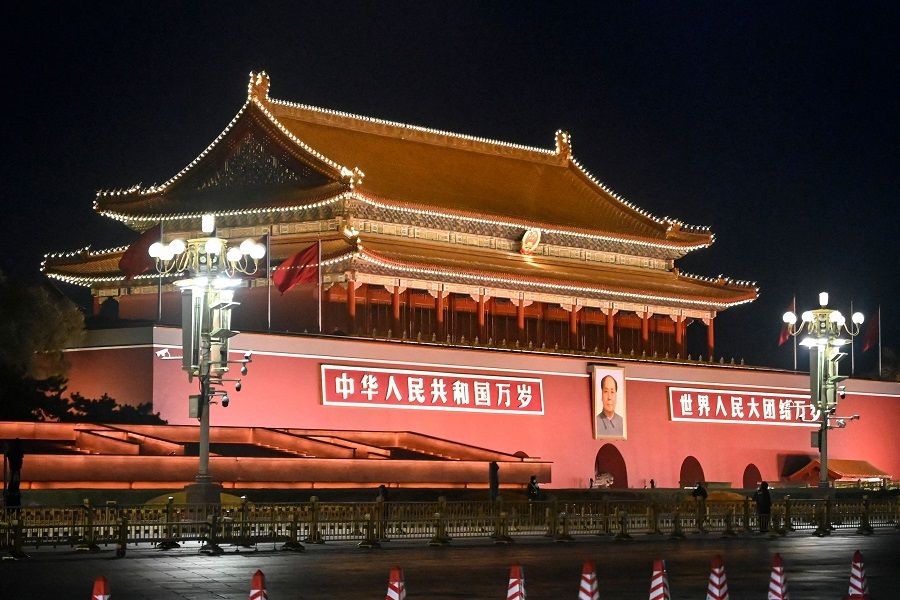
In China, the Axial Age laid the intellectual and ethical foundation for millennia of imperial rule. In India, it saw Buddhism and Hinduism coming into being, both of which were destined to spread wide and far. Meanwhile, out from the Jewish patriarch Abraham sprang Judaism, Christianity and Islam.
In any case, the fruits of classical civilisation in the West did not last very long. With the destruction of the Roman Empire by northern barbarians, Europe entered the dark Middle Ages. It was not until the rediscovery of the classical legacy during the Renaissance that multitudes of enlightened philosophers, thinkers, scientists, engineers and industrialists appeared, thus establishing modern science and the modern institutions. They initiated the First Industrial Revolution, thereby creating the modern industrial civilisation. We may call this era the Second Axial Age.
Having apparently exhausted all the internal resources and wisdom they could muster, they still see no way out. The window to a Third Axial Age is thus open.
Modernisation in the Second Axial Age eventually settled on two pathways. The first was that of democracy based on liberal capitalism. The other was that of totalitarian rule under the conditions of a planned economy.
The two modalities faced off during the Cold War with a dramatic outcome - the latter collapsed overnight, whereas the former won a complete victory and proclaimed itself as "the end of history". The end, however, was not to be.
Three decades later, both the capitalist economy and democracy are now in crisis. Having apparently exhausted all the internal resources and wisdom they could muster, they still see no way out. The window to a Third Axial Age is thus open. This is a fortuitous juncture in time for China's great work of "national rejuvenation". If China seizes this opportunity, it has a chance to return to the forefront of civilisation.
However, the vision of "national rejuvenation" is not grand enough, not enough to take on a mission of global historical import. The civilisations of the first two Axial Ages are defined by universalism that transcends national and racial boundaries. The Third Axial Age cannot possibly be an exception to this pattern. Indeed, the issues it needs to address are those faced by the human race as a whole.
... for China to transcend itself and attain universality, there are three inhibiting hurdles to cross: ideological orthodoxy, rigidity of centralisation and stunted social development.
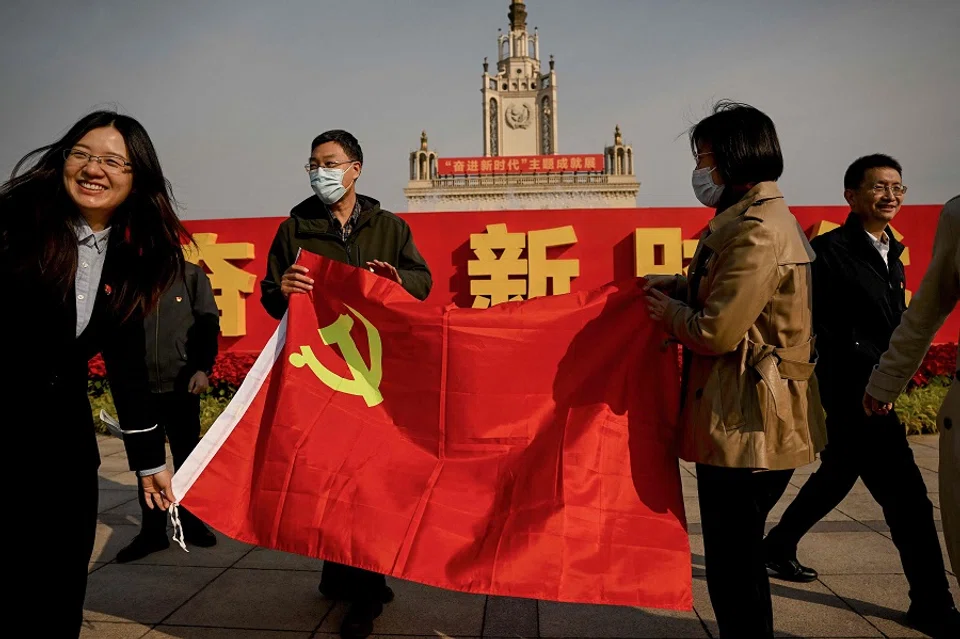
The Second Axial civilisation originally took shape in an unspectacular corner of our planet at a time when people had not even begun to consider the issues that are troubling the world today. These issues include climate change, degradation of resources and environment, weapons of mass destruction, infectious diseases, human security, employment and migrant issues, the meaning of life, polarisation of the rich and poor, disruptive technologies, extremist politics and social fissures, massive refugee influxes, terrorism, human and artificial intelligence relationship, the conundrums of interstellar development and migration.
The resolution thereof lies beyond the capabilities of the Second Axial civilisation. It is up to the new civilisation of the Third Axial Age to come up with master plans to deal with them. Only in the exploration of solutions to these issues may the "great rejuvenation of the Chinese nation" acquire universal significance. However, for China to transcend itself and attain universality, there are three inhibiting hurdles to cross: ideological orthodoxy, rigidity of centralisation and stunted social development.
Ideological orthodoxy
The last two civilisation explosions in history would not have been possible if not for the considerable freedom of thought and expression. The ancient Greeks and Romans were known for their city-state democracies. Europe at the beginning of the Second Axial Age was characterised by the decentralisation of power in feudal societies, as was China from the Spring and Autumn period to the Warring States period, when the Hundred Schools of Thought were vibrantly vying with one another. In contrast, everything is under strict control in today's China.
Marxism's historical vision looks straight into the future of human civilisation, but its strength lies in how it analyses the old world and guides people towards smashing it, not the mechanics of building a new world. Marxism is practically useless for guiding the market economy, even if it is a "socialist market economy". Indeed, its theory of class struggle actually serves to stir up social and political conflicts.
When its theories are being used through the authority of the state to put minds into nice little boxes and expand the field of off-limits subjects, China is effectively being tied down to the Second Axial Age.
In any case, this ideology was an early brainchild of the Second Axial civilisation. Much of the critical circumstances that gave rise to it have long ceased to exist, and it could not possibly have foreseen the conditions of our world today.
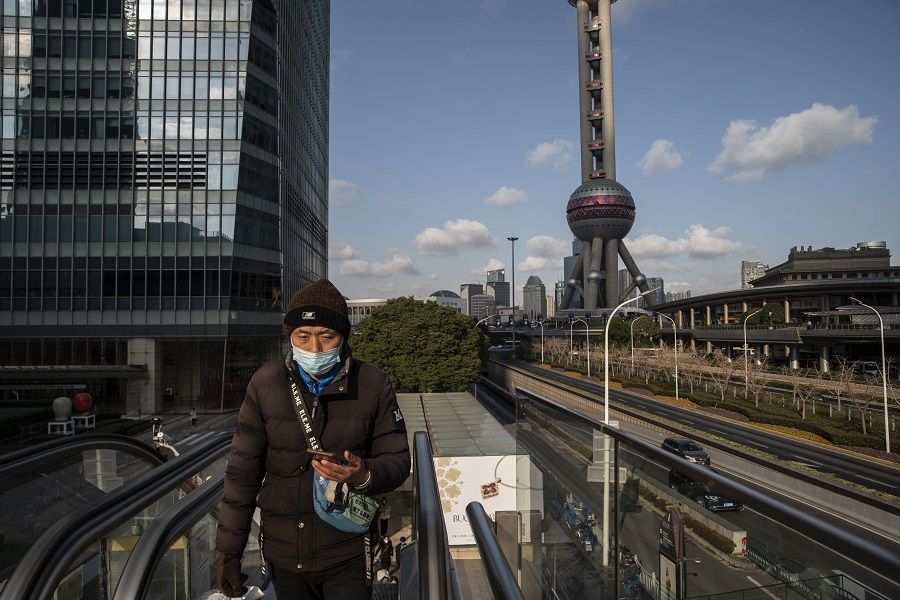
To cling to this ideology is to be bogged down by the past and be stunted to moving on into the future. When its theories are being used through the authority of the state to put minds into nice little boxes and expand the field of off-limits subjects, China is effectively being tied down to the Second Axial Age. China needs to go through its own Renaissance and Enlightenment in order to progress into the future.
Rigidity in the centralisation of power
Although the system of grand unity has its advantages, its flaws are also apparent. Thanks to such a system, Chinese-style "unlimited government" overstrains itself with responsibilities it cannot and should not take on as it tries to take charge of everything. The counter-pandemic efforts, for example, are wholly under the "personal deployment and command" of the supreme leader.
The sense of omnipotence here does not befit a modern, rational government. Even in a small city-state such as Singapore, the prime minister does not take charge of everything. Instead, he empowers the deputy prime minister and a team of experts to help run its anti-pandemic programmes. Overstretching one's job scope to take over what others are supposed to do is just symptomatic of political underdevelopment and governance inadequacy.
On top of the system of grand unity, China also creaks under the "great leader model". Meanwhile, the dizzying mantras of "Four Consciousnesses", "Two Upholds" and "Two Establishes" are being drummed into every official in the hierarchy every day. Thus, we can expect the country's vitality to be further diminished to zilch.
When power is excessively concentrated and officials are accountable only to the higher-ups and not to those below them, the doors to every bureaucratic evil fling wide open. Such evils include patterns of behaviour that draw much resentment from the people during the lockdowns and continue to prevail despite the central government's repeated proscriptions, such as the imposition of rigid uniformity, and the stacking up of excessive standards down through the hierarchic levels.
The way to rectify the "nine dragons controlling water" (九龙治水) - referring to power being held by a few key persons without adequate coordination - is not to focus power onto a single point...
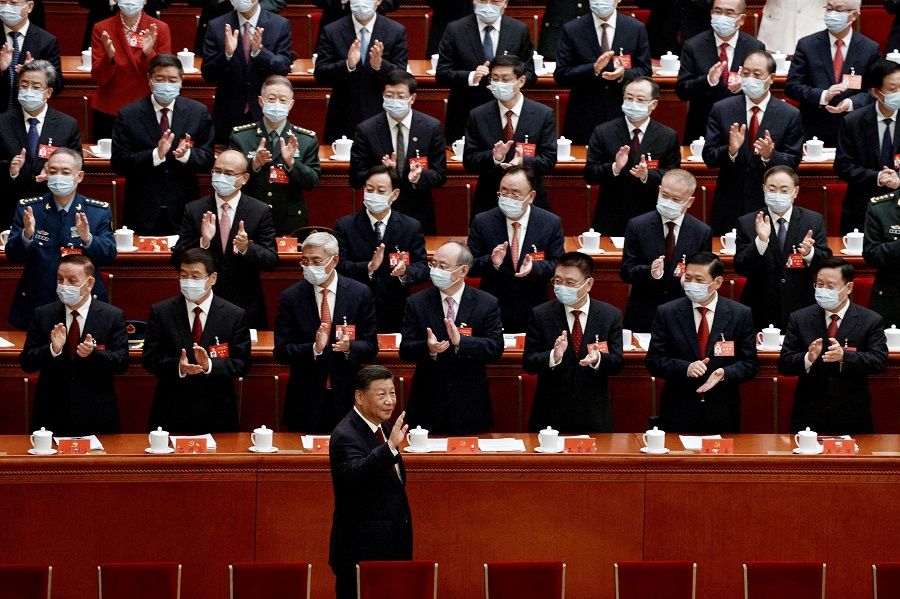
And there is no need to mention other well-documented habits such as pointless formalities, "bureaucratism", "traceism" (痕迹主义), corruption, abuses of power, the reporting of only good news while withholding the bad.
Are these not what the CCP has always fought against? And yet, at the same time, the party is also always doing all it can, as it were, to reinforce the conditions that produce precisely these undesirable tendencies.
For the governance of a supersized, super-complex country such as China, the devolution of power based on consensus is the path that has to be taken. The central government can grant autonomy to the localities and self-governance to the grassroots communities; rely mainly on its legal system to regulate the actions of various entities; and where gaps remain, have party members spearhead initiatives and act as role models, aided by the party discipline. By doing all these, a dynamic system of governance can be formed.
The way to rectify the "nine dragons controlling water" (九龙治水) - referring to power being held by a few key persons without adequate coordination - is not to focus power onto a single point, but an optimised mode of labour division and cooperation, as well as more effective procedures and systems for discussion and decision-making.
Stunted social development
As a result of the concentration of power, social development lags behind. In democracies and other countries with less concentrated power and greater latitude in social conditions, it is the general population that comes up with endless new ideas to tackle the numerous issues faced by all of humanity. This fertile field is also the locus of a great deal of experimentation to test out these ideas. Undoubtedly, such dynamics serve to lay the foundation for the coming civilisation of the Third Axial Age.
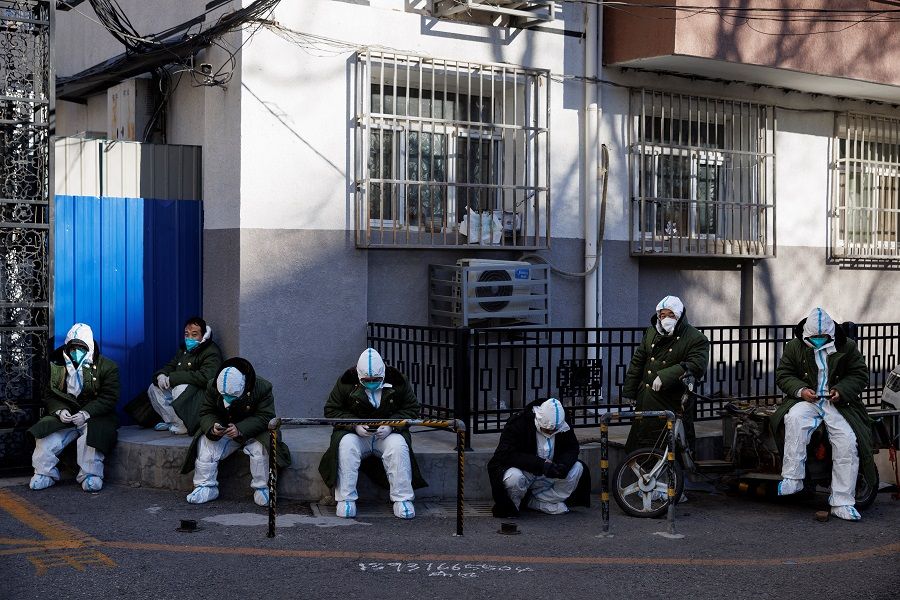
In contrast, restrictions are ever tightening in the social arena over recent years in China. The local governments' capacity for innovation is also shackled. It is as if a new "thought for a new era" alone is a cure-all for every woe. The realities of the Covid-19 controls over the last three years clearly demonstrate that things don't work that way at all.
If we were to examine "national rejuvenation" at the individual level, it is clear that the flesh-and-bone Chinese never had any significant dynamism to be "rejuvenated" in the first place. Between "state" and "family" (国 guo and 家 jia respectively, making parts of the word 国家, meaning country), "society" as an independent space for character building is missing. Surviving in the cracks is the norm for the Chinese people, as well as the formative cause of the deep-rooted vileness in the national character.
The metamorphosis only goes to show how human decency gets twisted under an authoritarian regime.
When Wuhan was hit by the first wave of the pandemic, the Covid-19 response personnel and volunteers who converged on the city from all over China showed themselves to be extremely commendable people. Their spirit of selfless devotion quickly won the respect of the whole country. Chinese President Xi Jinping even called them the "most lovable people".
Unfortunately, as the disease spread over time, the lockdowns dragged on and large numbers of locals were hired to do their job, the faceless men in white morphed into the hated henchmen and symbol of a detestable heavy-handed local governance.
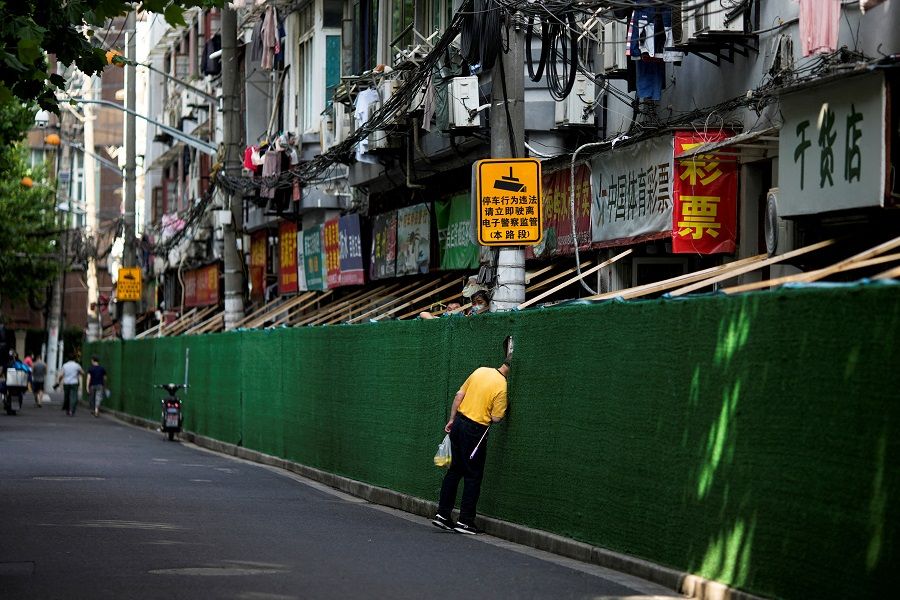
Looking at openly plastered slogans such as "We'll break your legs if you step outside, knock out your teeth if you talk back", we are reminded of the titular, thuggish functionaries described in "The Conscripting Officers at Shihao" by the Tang poet Du Fu.
Does the most profound source of strength for any civilisation not lie within the heart of everyone and a healthy, mature society?
Even though they hold no power at all in better times, some of these Covid-combatting temporary workers turn into swaggering bullies once they put on their protective gear. As an ancient Chinese playwright put it, "Commands are given as soon as power is in hand". The metamorphosis only goes to show how human decency gets twisted under an authoritarian regime.
The Chinese tend to compare their country with others in terms of state-level superiority, but fail to notice how tremendously they fall behind on the personal and social levels. Does the most profound source of strength for any civilisation not lie within the heart of everyone and a healthy, mature society? As we bear this in mind, it seems that in some areas China has yet to even catch up with the Second Axial civilisation.
This article was first published in Lianhe Zaobao as "民族复兴大业须更具普世意义".
Related: How China bolted from zero Covid towards herd immunity | Is China ill-prepared for a surge in Covid cases? | Chinese economy in 2023: Worse before it gets better | China is facing a harsh economic winter | Xi Jinping set on realising China dream after 20th Party Congress | Connecting past, present and future: Xi Jinping's logic of governance and legitimacy in his third term
